شركاؤنا
موثوق بها من قبل
أكثر من 1000 مزود حلول تكنولوجيا المعلومات والمؤسسات
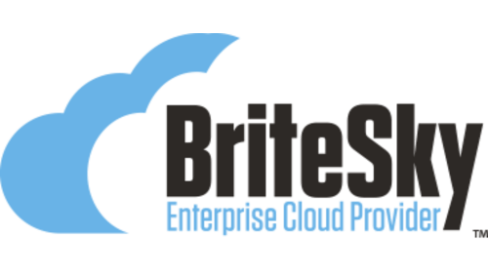
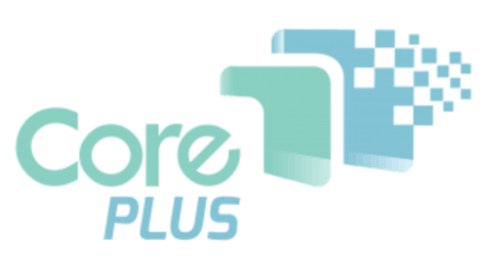







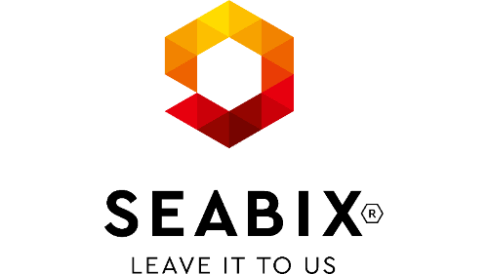

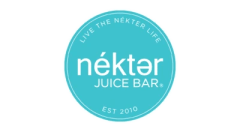












يتمتع الجميع حول العالم بالوصول إلى نفس الملفات، والتي تكون جميعها محدثة ودقيقة، من نظام آمن وسهل التطبيق.

كريستوفر جيسمان
مدير
هوائيات بانوراما
الآن يمكننا الذهاب إلى أي مقدم رعاية صحية في هولندا ونقول إن كل هذا يعمل وفقًا للوائح الرعاية الصحية الهولندية.

روب كريست
المدير والشريك المالك
داميكون
CentreStack هو أفضل حل بديل لخادم الملفات في السوق. إنهم لا يقودون السوق فحسب، بل في الأساس خلقوا سوقًا جديدًا.

ستيفن مونك
الرئيس التنفيذي
نوفيروس
كان هناك 1244 خرقًا للبيانات في الولايات المتحدة وحدها في عام 2018، وهذا يشمل فقط الحوادث التي تم الإبلاغ عنها فعليًا. ليس من المستغرب إذًا أن يبلغ نسبة 12٪ فقط من المشاركين في الاستطلاع يبلغون عن شعورهم بالثقة في قدرة الحكومة الفيدرالية على حماية بياناتهم عبر الإنترنت.
في عالم اليوم الذي يزداد تحوله إلى الرقمنة، من الضروري أن تتخذ خطوات لحماية بياناتك الحساسة على الإنترنت - في هذا الدليل الموجز، سنريك كيف.
تصبح التهديدات الأمنية السيبرانية جزءًا طبيعيًا من الحياة المعاصرة بشكل متزايد. أكثر من أي وقت مضى، أصبحت حياتنا متشابكة مع الأجهزة المتصلة بالإنترنت بسبب ارتفاع استخدام الهواتف الذكية، ووسائل التواصل الاجتماعي، وتطبيقات المواعدة، والخدمات المصرفية عبر الإنترنت.
كلما ازددنا اتصالًا بأجهزتنا الإلكترونية، كلما عرضنا أنفسنا لمزيد من التهديدات الأمنية السيبرانية وفرص استغلال بياناتنا من قبل أطراف ثالثة للحصول على منافع مالية. يتعلق مفهوم خصوصية البيانات بكيفية تعاملنا مع قطع المعلومات ("البيانات") بالنظر إلى جدارتها بالسرية.
ليست كل البيانات متساوية. على سبيل المثال، قد تكون مرتاحًا لمشاركة اسمك مع شخص غريب. ومع ذلك، من المحتمل أن تكون أقل استعدادًا لمشاركة عنوان منزلك أو مكان عملك. لذلك من المهم أن نخلق معايير وروتينات تحافظ على خصوصية بياناتنا الشخصية الحساسة.
في الاستخدام الشائع، تشير خصوصية البيانات إلى المعلومات الحرجة المتعلقة بالحياة الشخصية أو المهنية. غالبًا ما تُسمى هذه البيانات بـ "المعلومات الشخصية المحددة للهوية" (PII) لقدرتها على كشف هويتك في الحياة الواقعية. تشمل الأمثلة الشائعة للبيانات المتعلقة بـ PII ما يلي:
في حالة الشركات، تتعلق خصوصية البيانات بالحفاظ على المعلومات الحساسة المتعلقة بالعمليات اليومية للشركة. على سبيل المثال، سترغب الشركة الخاصة في حماية أي بيانات تتعلق بأبحاثها وتطويرها (R&D)، وأسرارها التجارية، والميزانيات العمومية، وبيانات الدخل، أو - والأسوأ من ذلك - بيانات عملائها.
في أيدي الجهات الضارة، يمكن استغلال البيانات الحساسة لابتزازهم من أجل المال أو الملكية الفكرية. هناك أيضًا العديد من الحالات التي يتم فيها استخدام البيانات الشخصية مثل الصور أو المعلومات المصرفية كوسيلة ابتزاز من قبل الجرائم الإلكترونية والقراصنة.
على الرغم من أن سرقة البيانات يمكن أن تسبب الدمار لفرد أو شركة، إلا أن الأمر أسوأ في حالة المستشفيات ومقدمي الخدمات الصحية. في عام 2019، كانت المستشفيات هدفًا رئيسيًا لهجمات الفدية من قبل القراصنة ذوي القبعات السوداء مع تأثر 17 مستشفى وعيادة. نظرًا لأن بيانات المستخدمين ذات قيمة كبيرة للمنظمات الصحية، غالبًا ما يدفع ضحايا الفدية ملايين الدولارات لاستعادة البيانات المسروقة من حيازتهم.

مع ظهور تقنيات المعلومات الجديدة، نحن مقدمون على مزيد من الراحة التي توفر لنا الوقت والطاقة. وبالمثل، نحن معرضون أيضًا للعديد من نقاط الضعف لسرقة الهوية وهجمات الأمن السيبراني من قبل القراصنة الذين يخترقون أجهزتنا أو شبكاتنا.
ليس من المستغرب، إذًا، أن تقريرًا حديثًا لشركة برايس ووترهاوس كوبرز وجد أن 69% من المستهلكين يعتقدون أن الشركات عرضة للهجمات السيبرانية والقراصنة. أكثر من أي وقت مضى، تشعر الشركات وعملاؤها بالقلق إزاء سلامة معلوماتهم وما إذا كانت حقوق خصوصية بياناتهم تُحترم.
في نفس التقرير، يدعي أقلية ضئيلة من المستجيبين (10%) أنهم يشعرون أن لديهم السيطرة الكاملة على بياناتهم الشخصية. من هذا، قد يفترض المرء أن المستهلكين يتطلعون إلى السلطات الحكومية والمنظمين لتشديد القيود على كيفية استخدام بياناتهم.
ومع ذلك، العكس هو الصحيح، حيث يدعي 72% من المستجيبين أن الشركات والقطاع الخاص أكثر قدرة على حماية بياناتهم من الجهات الحكومية.
الحل هو أن الشركات في القطاع الخاص يجب أن تبذل جهدًا إضافيًا لحماية بيانات عملائها ومستخدميها. نظرًا لأن المستهلكين يضعون ثقتهم في الشركات للحفاظ على سلامة بياناتهم، من الضروري أن تحترم تلك الشركات تفضيلات عملائها وإلا سينتقل المستهلكون إلى خيارات أخرى في السوق حيث تكون بياناتهم أكثر أمانًا.
شهدت التطورات الأخيرة في القطاع الخصوصي محاولات لمعالجة الطلب المتزايد من المستهلكين على خصوصية البيانات الشاملة بشكل مستقل عن الحكومة. مشروع أمان تطبيقات الويب المفتوح (OWASP) هو منظمة غير ربحية طورت عهدًا لأخصائيي الأمن السيبراني والبرمجيات الراغبين في تعزيز تنظيمات خصوصية البيانات.
يشجع OWASP الأشخاص الذين يتعاملون مع بيانات حساسة على اعتماد إجراءات وبروتوكولات لحماية المعلومات الشخصية من السرقة المحتملة أو الاستغلال. وهذا ينطبق بشكل مضاعف على أخصائيي الأمان الذين يتعاملون مع نقل البيانات الآمن لأن حزم البيانات يمكن سرقتها والعبث بها في أي عقدة في الشبكة التي يعمل فيها عنوان IP للتوجيه.
لكن الحقيقة المؤسفة، هي أنه لا يوجد خصوصية حقيقية على الإنترنت. البيانات المرسلة عبر الإنترنت عرضة للسرقة والفحص من قبل السلطات الحكومية والقراصنة. ومع ذلك، هناك احتياطات يمكن للشركات والأفراد على حد سواء اتخاذها للحفاظ على بياناتهم بأمان قدر الإمكان.
يمكن للأشخاص الحريصين على خصوصيتهم اتخاذ خطوات للحفاظ على معلوماتهم بعيدة عن الأعين الفضولية. لحسن الحظ، لا تحتاج إلى تشفير بياناتك قبل عدة طبقات من شبكات VPN أو شراء حاسوب خارق يمكنه تشفير جميع البيانات التي يستقبلها حاسوبك في لحظة. بدلاً من ذلك، هناك تقنيات بسيطة يمكنك اعتمادها للحفاظ على معلوماتك الشخصية بعيدة عن أيدي القراصنة، تشمل:
في النهاية. من مسؤوليتك أن تكون حارسًا جيدًا لمعلوماتك الشخصية. إذا كنت تهتم بالحفاظ على خصوصية بياناتك، اتبع النصائح الأساسية الموضحة أعلاه لتوفير الحماية الأساسية لنفسك ضد سرقة البيانات والهوية.
الفدية هي شكل نسبياً جديد من البرمجيات الخبيثة التي يهدد فيها المهاجم بنشر المعلومات الشخصية للضحية أو تقييد الوصول إليها إلى أجل غير مسمى حتى يدفع الضحية فدية. في معظم الحالات، يستخدم قراصنة الفدية تقنيات تسمى جماعياً بـ "ابتزاز التشفير الفيروسي" لجعل من المستحيل على الضحايا استرداد بياناتهم دون فك تشفير القراصنة لها.
في عقد 2010، نمت انتشار هجمات الفدية بشكل حاد. كان هناك أكثر من 181.5 مليون هجمة فدية مبلغ عنها في جميع أنحاء العالم في يناير 2018 وحده. يُذكر هنا هجوم الفدية CryptoLocker الذي ابتز أكثر من 18 مليون دولار من الضحايا بين عامي 2013 وأواخر 2014 عبر قسائم نقدية مدفوعة مسبقاً أو بيتكوين.
تتعاون وكالات إنفاذ القانون حول العالم، بما في ذلك الإنتربول، مكتب التحقيقات الفيدرالي (FBI)، وكالة الجريمة الوطنية في المملكة المتحدة، ووزارة العدل الأمريكية بنشاط للتحقيق وإسقاط مهاجمي الفدية. على سبيل المثال، أنهت عملية إنفاذ القانون المشتركة المسماة بعملية توفار فيروس الفدية CryptoLocker بنجاح بعد عزل الملف الجذر في مايو 2014.
في جميع الحالات تقريباً، يطلب مهاجمو الفدية الدفع في شكل عملات مشفرة شائعة مثل البيتكوين، الإيثر، أو اللايتكوين. نظراً لأن العملات المشفرة تسمح بالمعاملات المجهولة دون استخدام وسطاء طرف ثالث مثل البنوك ومعالجات الدفع، فإن العملات المشفرة هي طريقة الدفع المفضلة لدى قراصنة الفدية.
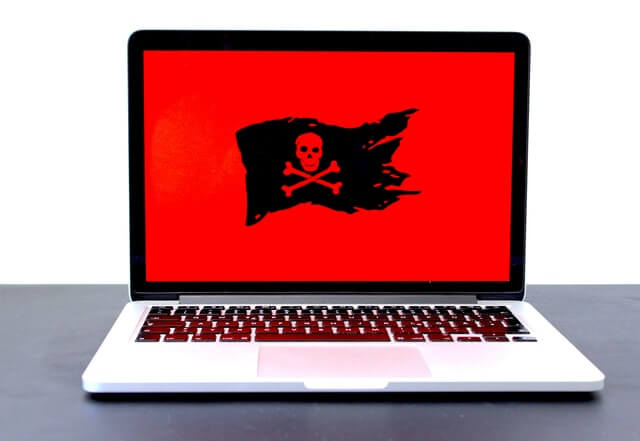
تعتبر عملية النسخ الاحتياطي لبياناتك الحساسة ربما أقوى دفاع ضد القراصنة واللصوص الذين يشكلون تهديدًا لخصوصية بياناتك. عندما تقوم بنسخ بياناتك احتياطيًا، فإنك تنشئ بمثابة وثيقة تأمين لبياناتك من خلال توفير مسار بديل للوصول في حالة تعرض معلوماتك الشخصية المحددة للخطر من قبل طرف ثالث ضار.
بالإضافة إلى ذلك، يعتبر النسخ الاحتياطي لبياناتك إلى نظام مشاركة ملفات آمن عن بُعد أو سحابي أو داخل المؤسسة مشاركة الملفات الآمنة حماية ضد مخاطر الكوارث الطبيعية وأعطال الأجهزة أو البرمجيات، أو ببساطة الأخطاء البشرية. الحقيقة المؤسفة هي أن أي شخص يمكن أن يفقد بياناته الحساسة إذا لم يكن حذرًا، وإنشاء نسخة ثانية أو ثالثة من بياناتهم يمكن أن يأتي للإنقاذ في حالة الطوارئ.
وجد استطلاع في عام 2018 أن 67٪ من جميع خسائر البيانات كانت بسبب الأعطال الأجهزة والتكنولوجية، والتي يمكن الوقاية منها عن طريق النسخ الاحتياطي لبياناتك إلى قرص صلب منفصل أو حل تخزين سحابي. تظل الحقيقة أن خصوصية بياناتك يمكن أن تُخترق حتى لو لم ترتكب أي أخطاء أو أخطاء بشرية - لذا، يجب أن تحرص على حماية نفسك من خلال الاستثمار في خيار النسخ الاحتياطي للبيانات.
وجود نسخة ثانية من بياناتك يحرم مهاجمي برامج الفدية من قوتهم في ابتزاز الأموال منك. ما لم يتمكن مهاجمو برامج الفدية من اختراق جهاز تخزين البيانات الاحتياطية الخاص بك، فلن تحتاج إلى دفع الفدية للمهاجم مقابل معلوماتك لأنها متاحة بالفعل بسهولة.
لمزيد من حماية بياناتك من مهاجمي برامج الفدية، يجب التأكد من أن البيانات المدعومة مشفرة من البداية إلى النهاية. عندما تكون البيانات مشفرة، يُجبر المجرمون الإلكترونيون على فك تشفير المعلومات باستخدام التشفير المتقدم الذي يتطلب قدراً كبيراً من قوة معالجة الكمبيوتر - استثمار قد لا يكون مجدياً للمهاجم.
لائحة العامة لحماية البيانات (GDPR) وغيرها من قوانين وأنظمة حماية البيانات تساعد في حماية بيانات الأفراد وتتطلب من مالكي البيانات اتباع متطلبات مكلفة. تحدد اللائحة العامة لحماية البيانات معايير قانونية صارمة تحكم كيفية مشاركة وتخزين البيانات الشخصية.
تحت اللائحة العامة لحماية البيانات، تتراوح تكلفة انتهاك قوانين خصوصية البيانات من حوالي 22.5 مليون دولار إلى أربعة في المئة من إيرادات المنظمة السنوية، أيهما أكبر. تشمل الغرامات البارزة المفروضة تحت لائحة حماية البيانات الجديدة في الاتحاد الأوروبي 222 مليون دولار و120 مليون دولار ضد شركة طيران ومتعددة الجنسيات الفندقية على التوالي.
تحت القانون الجديد، يجب على الشركات التي تحتفظ ببيانات الأفراد الإبلاغ عن أي حالة من حالات اختراق البيانات أو سرقة الهوية للمشرفين الأوروبيين خلال 72 ساعة من وقوع الاختراق. بهذه الطريقة، لا تظل البيانات المخترقة في الظلام ويمكن إعلام الأفراد عما إذا كانت بياناتهم في أيدي الجهات الضارة.
في الولايات المتحدة، يفرض قانون خصوصية المستهلك في كاليفورنيا تنظيمات تشبه اللوائح العامة لحماية البيانات على الشركات التي تجمع بيانات الأفراد. مع بدء تنفيذ القانون في يناير 2020، يسعى قانون خصوصية المستهلك إلى تعزيز بروتوكولات ومعايير الإنترنت لمنع خروقات البيانات واستغلالها.
اليوم تبزغ حقبة جديدة في عالم الخصوصية الرقمية. بموجب قانون كاليفورنيا، فضلاً عن اللوائح العامة لحماية البيانات، يجب الآن الإفصاح عن أي خرق للبيانات للجهات التنظيمية. قانون خصوصية البيانات في كاليفورنيا، الذي تم تمريره بالإجماع من قبل كلا مجلسي الولاية التشريعي، يقيد ممارسات جمع البيانات لشركات التكنولوجيا ووسائل التواصل الاجتماعي - وبذلك، يحدون أيضًا من كمية البيانات التي يمكن سرقتها واستغلالها من المستهلكين.
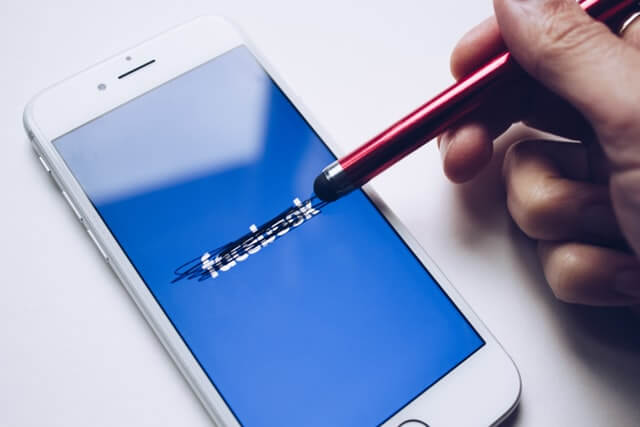
في عام 2019، فرضت لجنة التجارة الفيدرالية الأمريكية عقوبة غير مسبوقة (5 مليارات دولار) على شركة فيسبوك للتواصل الاجتماعي عقب ثماني انتهاكات متعلقة بالخصوصية. في عالم اليوم، تمتلك الشركات الخاصة إمكانية الوصول إلى بياناتنا أكثر من أي وقت مضى، وما لم نحاسبهم قد ننتهي ببياناتنا مسروقة أو مباعة لأطراف ضارة.